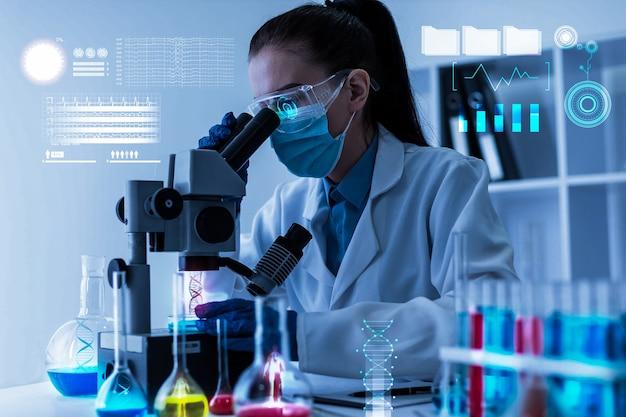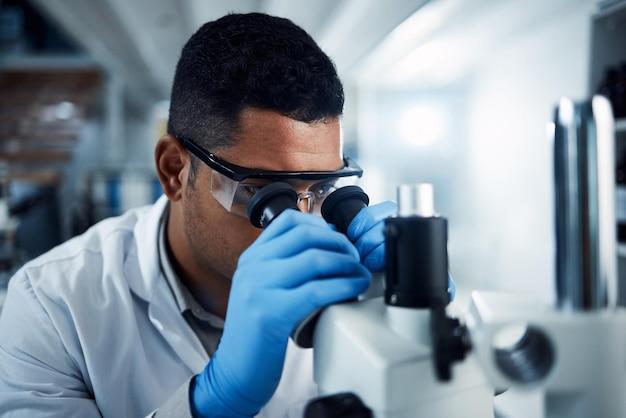In our fast-paced world, it’s easy to overlook the significance of observation. Yet, keen observation skills are essential in many aspects of life, from solving crimes to understanding the world around us. In this blog post, we’ll explore the importance of observation skills in the field of forensic science.
Observation is not just a passive activity; it is a skill that can be honed and developed. It involves paying attention to detail, noticing patterns, and identifying important information. A keen observer can pick up on subtle clues, analyze complex situations, and draw accurate conclusions.
In forensic science, observation is crucial for gathering evidence, interpreting crime scenes, and reconstructing events. By carefully observing physical evidence, forensic investigators can uncover key facts, identify suspects, and contribute to the pursuit of justice. This blog post will delve into why observation skills are vital in forensic science and explore real-life examples that highlight their importance.
So, let’s dive in and uncover the fascinating world of observation skills in the context of forensic science!

Why Observation Skills are Crucial in Forensic Science
Imagine a forensic investigator arriving at a crime scene, donning a sleek lab coat, and brandishing a magnifying glass. Whispers of “Elementary, my dear Watson!” may come to mind, but the reality is a tad different. While Sherlock Holmes made observation look like a breeze, it’s no walk in the park for real forensic scientists. If you’ve ever wondered why observation skills are essential in forensic science, buckle up, because we’re about to delve into the nitty-gritty of this captivating field.
Heightening Senses: The Forensic Observer’s Superpower
As forensic scientists, our observation skills are our equivalent of superhero abilities. We activate our “superpower” of heightened senses to scrutinize every detail at a crime scene. From the tiniest fiber left by the perpetrator to the faintest footprint in the mud, nothing escapes our vigilant eyes.
Connecting the Dots: The Art of Deduction
Observation is more than just letting your eyes wander; it’s about connecting the dots. A skilled forensic observer can spot those seemingly insignificant details that lead to breakthroughs in the investigation. Like a master puzzle solver, they piece together seemingly unrelated elements to unravel the truth.
Unearthing Clues Others Might Miss
Magicians have nothing on a forensic scientist’s ability to find hidden clues. Tapping into their powers of keen observation, these sleuths unravel the secrets lurking beneath the surface. They’re quick to notice the discarded cigarette butt in the corner or the smudge on a window, which might hold the key to unlocking the case.
Capturing the Moment: A Snapshot in Time
In crime scene investigation, timing is everything. Observation skills allow forensic scientists to freeze-frame the crime scene in their minds, capturing the moment for analysis and preservation. Each detail observed becomes a piece of evidence that may hold the key to solving the puzzle.
Testifying with Confidence: Seeing is Believing
When it comes to presenting evidence in court, observation skills are crucial. Imagine a forensic scientist on the witness stand stumbling over their own words or unable to recall an essential detail. A skilled observer, however, can stand tall, confidently explaining their findings and providing expert testimony that can make or break a case.
It’s All in the Details: Precision and Accuracy
In the world of forensic science, the devil truly is in the details. Observation skills enable forensic scientists to be precise and meticulous in their analysis. A slight variation in the shape of a fingerprint or a barely visible mark can be the deciding factor between suspects. With observation as their guiding compass, forensic scientists ensure accuracy in their conclusions.
The Subtle Art of People Watching
While observation traditionally focuses on physical evidence, it also extends to the behavior and actions of individuals. Skilled forensic scientists have honed their ability to read people, noticing even the slightest flicker of emotion or body language. This allows them to uncover hidden motives, spot potential suspects, and understand the psychology behind the crime.
Training the Observational Eye
Observation skills aren’t just innate talents; they can be honed and mastered through rigorous training and practice. Forensic scientists undergo extensive education and real-world experience to sharpen their skills. From dissecting fictional crime scenes to engaging in practical exercises, every opportunity is seized to develop their observational eye.
Observation skills are the backbone of forensic science, unlocking the mysteries hidden within crime scenes. The ability to keenly observe, connect dots, and uncover hidden clues is what sets forensic scientists apart. So, the next time you find yourself silently analyzing your surroundings, remember that you too possess the potential to be a great observer. However, don’t forget to drop the magnifying glass; after all, you don’t want people to mistake you for Sherlock Holmes!

FAQ: Why Are Observation Skills Important to Forensic Science?
Observation skills play a crucial role in forensic science. From crime scene investigations to analyzing evidence, keen observation skills are essential for forensic experts. In this FAQ-style subsection, we will delve into the importance of observation skills in forensic science, their application in different areas, and their impact on investigations. So, let’s get started by answering some frequently asked questions!
Why is observation important in life
Observation is fundamental not just in forensic science but in our everyday lives as well. It helps us perceive and understand the world around us. By being observant, we can gather information, detect patterns, and make accurate judgments. So, whether you’re solving a crime or simply navigating through life, observation is a skill that will always serve you well.
Is observation a skill
Absolutely! Observation is not just a static process; it’s a skill that can be developed and honed over time. By training ourselves to pay attention to details, we can improve our ability to observe accurately. And like any skill, the more we practice, the more proficient we become.
What can you learn from observation
Observation offers us a wealth of knowledge. When we observe, we can gain insights into human behavior, identify unusual occurrences, and even discover overlooked evidence. By carefully observing our surroundings, we can uncover hidden information that may hold the key to solving mysteries or understanding critical situations.
Why is observation interpretation and reporting of observation important in a criminal investigation
Observation, interpretation, and reporting are vital steps in a criminal investigation. The observations made by forensic experts provide crucial evidence that can determine the outcome of a case. Accurate interpretation and meticulous reporting ensure that the observations are properly understood, recorded, and presented in court. In a nutshell, observation is the foundation, interpretation is the analysis, and reporting is the bridge that connects the two, forming a comprehensive narrative for criminal investigations.
What should you avoid during observations
When conducting observations, it is important to steer clear of biases and preconceived notions. Our observations must be objective and unbiased, allowing us to see things as they truly are. Additionally, avoiding distractions, staying focused, and maintaining attention to detail are essential to avoid missing crucial information.
What are the qualities of a good observer
A good observer possesses several key qualities that facilitate accurate observations. These include keen attention to detail, a sharp memory, objectivity, patience, and excellent communication skills. A good observer knows that the devil lies in the details and understands the importance of leaving no stone unturned.
Why are observation skills important to forensic science
Observation skills are the backbone of forensic science. Whether analyzing crime scenes, examining evidence in a laboratory, or reconstructing a crime, forensic experts rely heavily on their observational abilities. These skills enable them to identify, collect, and interpret evidence with precision, ultimately aiding in the pursuit of justice.
How do observations support a child’s development
Observation plays a vital role in a child’s development. By keenly observing children, parents, educators, and psychologists can gain valuable insights into their behavior, emotions, and cognitive processes. This knowledge allows for tailored interventions, personalized learning, and the nurturing of each child’s unique strengths and abilities.
Why is observation important in learning
Observation is an integral part of the learning process. Through observation, learners can see concepts in action, understand practical applications, and gain deeper insights. By observing experienced individuals or real-world examples, learners can absorb knowledge more effectively and apply it to their own endeavors.
What is observation with an example
Let’s consider a scenario. Imagine you spot a person in a crowded park who seems a bit suspicious. They are nervously looking around, wearing a heavy coat on a sweltering day. Being observant, you notice that they exchange an object with someone quickly before hurriedly leaving the park. This observation, combined with others, could provide valuable clues to law enforcement, potentially leading to the prevention or resolution of a crime. So, observation has the power to uncover hidden truths and make a significant impact.
Observation skills are not to be underestimated, especially in the field of forensic science. By actively engaging our observation skills, we can unlock hidden details, make connections, and unveil the truth. So, whether you’re pursuing a career in forensic science or simply aiming to enhance your observational abilities, remember that observation is not just a skill; it’s a superpower that can change the course of investigations and shed light on the unknown.
